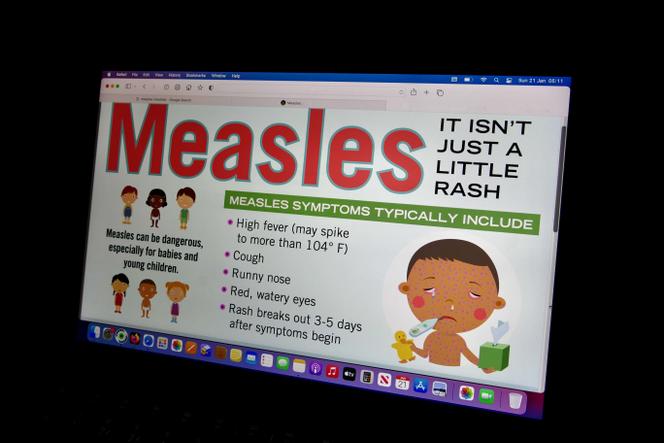


The British government has sounded the alarm: A measles epidemic has broken out in the Midlands (central England) over recent months, and without an accelerated vaccination campaign, it could spread to other British towns and cities, with dire consequences.
For unvaccinated children (or adults), this highly infectious disease – which had been almost non-existent in the country for some years – causes fever and rashes, and can develop into serious or even fatal forms. The populations most at risk from measles are babies – who are too young to receive a first dose of vaccine – pregnant women and those with weakened immune systems.
The figures are worrying: From January 1 to November 30, 2023, 209 laboratory-confirmed cases of measles were detected in England. In November alone, 43 new cases were reported, mainly in the West Midlands and Yorkshire (northeastern England) regions. Infections accelerated in the autumn; as of January 18, 2024, 216 new cases had been confirmed and 103 probable cases identified in the West Midlands – 80% of which were observed in Birmingham – with the majority involving children under 10.
British health authorities are all the more concerned because more than 3.4 million children under the age of 16 in England have been insufficiently protected against this disease, which the national media has described as being "Victorian." This is due to inadequate vaccination coverage rates: Between 2022 and 2023, around 85% of children had received their two doses of the MMR (measles, mumps, rubella) vaccine by their fifth birthday – the lowest level since 2010-2011 – whereas the national health authorities have recommended a 95% national coverage rate.
In some cities in central and northern England, such as Liverpool, Manchester, Birmingham and Nottingham, the coverage rate of fully vaccinated 5-year-olds has fallen to 75%, according to data from the National Health Service (NHS), the British public health system. In Birmingham, a child infected with the measles virus had to be hospitalized. "Colleagues across the West Midlands have worked tirelessly to try to control the outbreak, but with vaccine uptake in some communities so low, there is now a very real risk of seeing the virus spread in other towns and cities," said Jenny Harries, the head of the UK Health Security Agency, during a January 19 visit to Birmingham.
On January 24, the World Health Organization also warned of an "alarming" increase in measles cases in Europe, with 42,200 cases recorded in 41 countries in 2023, compared with just 941 in 2022. Yet the NHS provides the MMR vaccine free of charge, in two doses: the first after the child's first birthday, the second around three years and four months old. These two doses are sufficient to ensure a lifetime of coverage. Over 99% of children vaccinated with two doses of the MMR vaccine will be protected against rubella and measles. Protection against mumps is more limited, but those who catch it after vaccination generally experience reduced symptoms.
You have 35% of this article left to read. The rest is for subscribers only.
